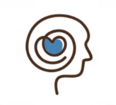The Sound of Self-Care
Music is more than just sound—it’s a powerful tool for mental well-being. From lifting moods to helping process emotions, music has a unique ability to heal and connect. Singer-songwriter Tessa Philips shares how music has shaped her journey, offering insight into its therapeutic effects and how anyone can use it for self-care.
Nysha Prasad
3/12/20253 min read


Music has always been a big part of human life, but its impact on mental health is especially powerful. Research shows that listening to music can lower stress, ease anxiety, and even help with symptoms of depression by triggering the brain’s reward system. Music is a universal language that connects emotions, provides comfort, and builds resilience. To dive deeper into this, I spoke with Tessa Philips, a Los Angeles-based indie/pop singer-songwriter. Through her music and personal experiences, she highlights just how therapeutic music can be.
Why Music Is Good for Mental Health
Science backs up the idea that music is good for the mind. It stimulates the brain’s reward pathways, releases dopamine (the "feel-good" chemical), and helps with mood regulation. It also activates areas of the brain linked to memory, emotions, and stress management.
Tessa believes that music provides a way to escape reality. "Much like reading a book or watching a movie, music allows you to transport yourself to a completely different world," she says. "It’s a way to lose yourself in the moment and experience something entirely new." This kind of escape offers a mental reset, giving people space to process their emotions through melodies and lyrics that speak to them.
The Healing Role of Music in Personal Struggles
Music has helped many people through tough times. Whether dealing with grief, stress, or personal setbacks, songs have a way of making us feel understood.
For Tessa, music has been a crucial outlet during difficult moments. "Music has definitely helped me through some of my toughest times, whether it was dealing with the loss of a friend or the pain of rejection," she shares. "Writing a song has always been my way of processing emotions and expressing what I'm going through. It’s like therapy for me—through music, I can channel my feelings into something that feels both cathartic and healing."
Creating Music as a Form of Therapy
Making music isn’t just for professionals—whether you write lyrics, play an instrument, or just hum along, creating music can be a powerful way to express emotions and relieve stress. For Tessa, songwriting has been an essential tool for processing emotions. "Music and songwriting have been powerful tools for me in understanding and expressing what I'm feeling," she says. Even when she’s in a good mood, she naturally gravitates toward writing emotional songs. "Sometimes I write about emotions or experiences I haven’t personally gone through, but there’s something about expressing those feelings that feels natural to me."
Beyond personal creativity, music therapy has been widely used to help with mental health conditions like anxiety, PTSD, and depression. Creating music gives people a structured yet creative way to explore their emotions and find healing.
Practical Tips for Using Music to Improve Mental Well-Being
If you’re looking for ways to use music to boost your mental health, here are some ideas:
Make personal playlists – Choose songs that lift your mood or help you unwind during stressful moments.
Try different genres – See what works best for you—upbeat pop, relaxing classical, or deep indie tracks.
Write or create music – Don’t worry about being perfect; just express yourself through lyrics or melodies.
Listen intentionally – Set aside time to really absorb the music, allowing yourself to feel and process emotions.
Tessa encourages people to embrace music as a form of self-care. "My advice would be to just let go and write whatever you're feeling, no matter how silly or random it might seem. The key is to leave all judgment behind and just focus on expressing yourself honestly. Music can be such a powerful outlet, and sometimes it’s in the raw, unexpected moments that the most healing happens."
Conclusion
Music is more than just sound—it’s a form of self-expression, a source of comfort, and a tool for healing. Whether you’re listening or creating, music can help you process emotions, find relief, and feel understood. As Tessa beautifully puts it, "Music allows you to lose yourself in the moment and experience something entirely new." Check out her music video for her debut single No Closure on YouTube, and explore more of her work at tessaphilips.com.
- Nysha
